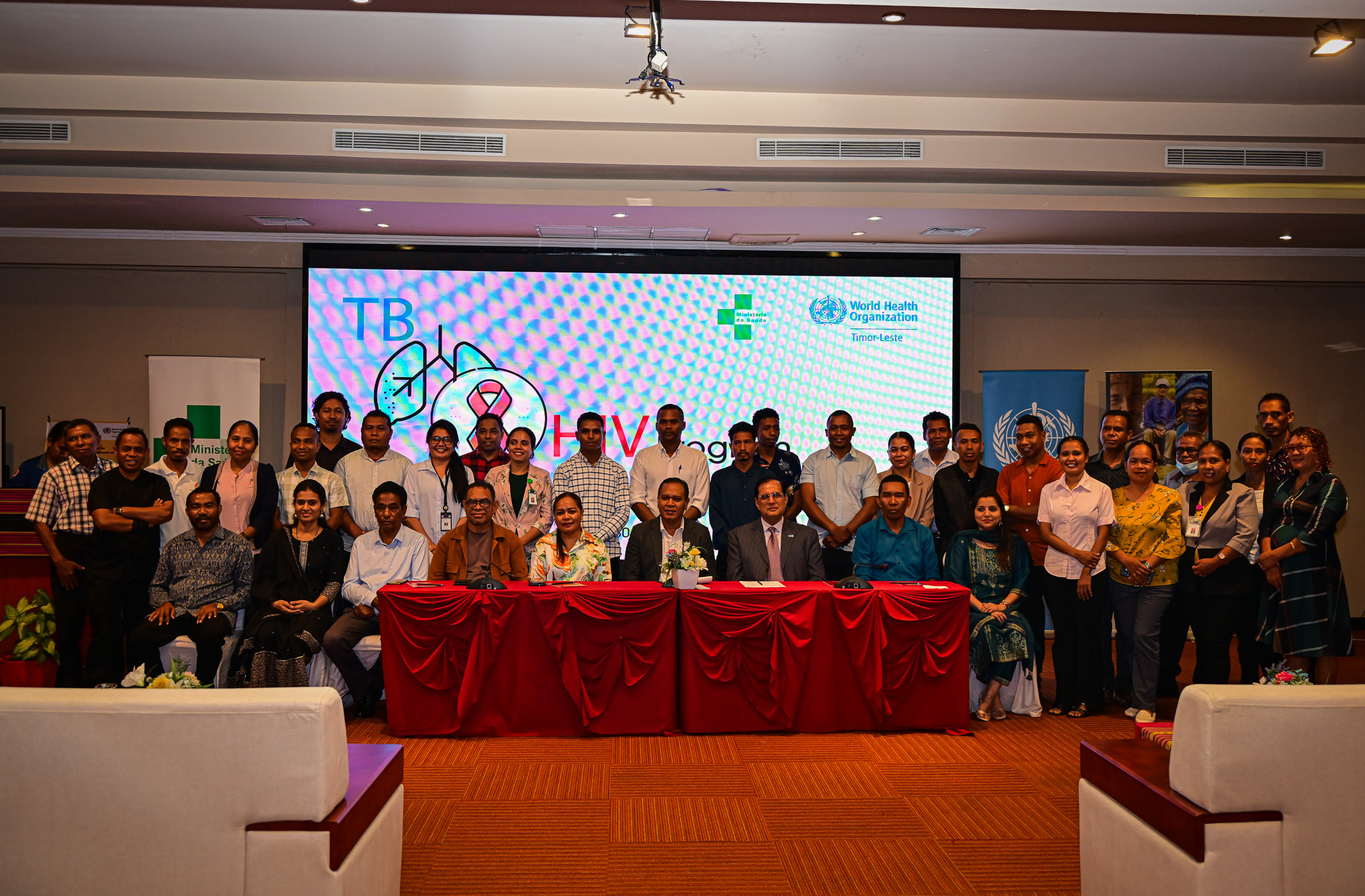Dili, May 27: The World Health Organization (WHO), in collaboration with the Ministry of Health, is hosting a first-of-its-kind joint Tuberculosis and HIV Programme Management Orientation Workshop in Timor-Leste.
This landmark initiative, held from 27–30 May, is designed to strengthen the capacity of programme managers and supervisors at the national and municipality levels by equipping them with the knowledge and tools needed to more effectively lead, coordinate and manage TB and HIV responses.
While Timor-Leste has made determined progress in tackling the dual burden of TB and HIV, these diseases often overlap—clinically and programmatically. Addressing them together presents an opportunity to build more integrated and efficient health systems.
Speaking at the opening on Tuesday, Dr Flavio Brandão, Vice-Minister for the Operationalization of Hospitals, commended participants for their dedication and passion in combating TB and HIV, calling the workshop a turning point in the nation’s journey to endTB by 2025. He urged a shift in mindset—where a death from TB is no longer treated as insignificant—and stressed the need to end stigma, which often forces people to hide a curable disease. “Our success against TB must inspire how we tackle HIV,” he said.
Despite strong national efforts—including the National Plan for Accelerated Actions to End TB and the expansion of HIV services—gaps remain in programme management, leadership, and resource optimization.

“The 2023 Joint External Review of TB–HIV programmes made one thing clear: tackling issues like low case detection, limited diagnostic access, service quality, and weak community engagement will not be solved by clinical knowledge alone,” said Dr Arvind Mathur, WHO Representative. “It demands bold leadership, strong programme management, efficient planning, clear communication, and a commitment across all levels.”
The workshop, conducted in partnership with the International Institute of Health Management Research (IIHMR) and the Communicable Diseases team of WHO Timor-Leste, offers hands-on, interactive orientation tailored to real-world programmatic challenges. It is designed to strengthen programme planning and orient participants to the administrative and organisational structures of the National TB Programme (NTP) and National AIDS Programme (NAP).
Dr Mathur also encouraged participants to reflect on the changing landscape of financial uncertainty. “We need to do focused work—and achieve more with less,” he said. “The path to ending TB and controlling HIV is not only about science and medicine; it is equally about leadership, teamwork, and smart implementation.”
Participants from across the country will also develop key management competencies—such as effective verbal and non-verbal communication, team-building skills, and strategies to enhance coordination across departments. Also present at the event were Sr Constantino Lopes, head of NTP programme and Dr Elisabeth Leto Mau, Director General – Primary Health Care.
As Dr Brandão stated during his address, “Let us reflect on our COVID-19 response: quick and strong, with unified systems. Why not TB?” His words serve as a call to action for adopting the same urgency, coordination, and leadership in tackling TB and HIV. “Everyone here must learn from past experiences to improve our approach, so that future generations no longer need workshops like this—but instead, share stories of our success,” he added.
